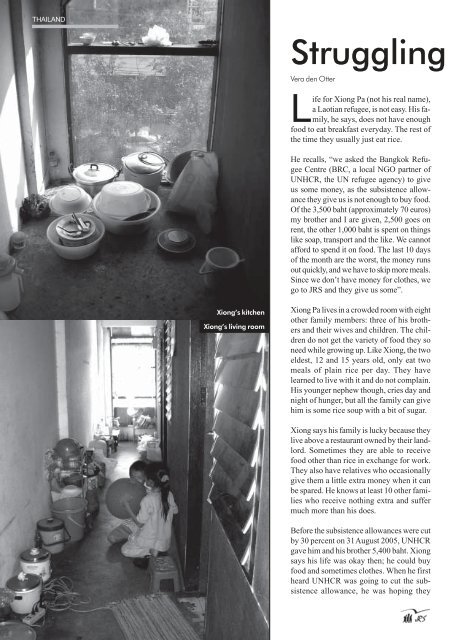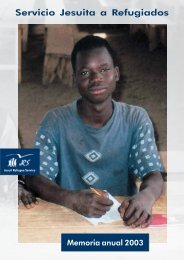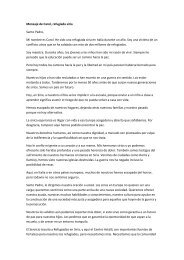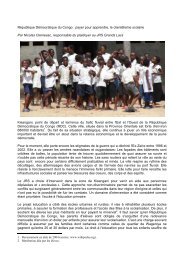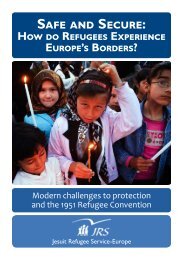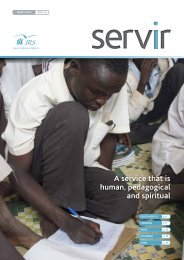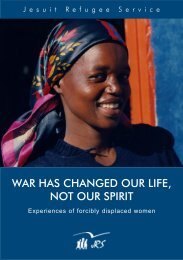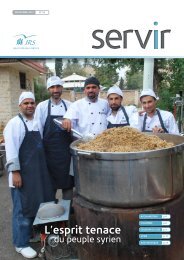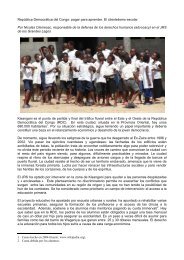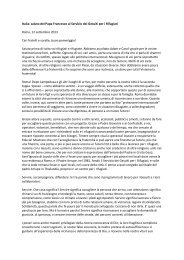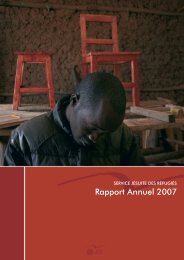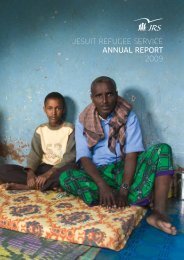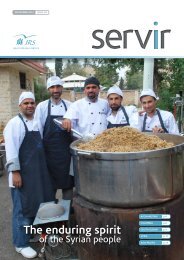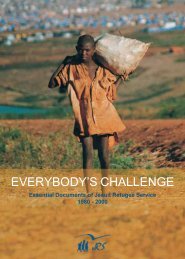Create successful ePaper yourself
Turn your PDF publications into a flip-book with our unique Google optimized e-Paper software.
THAILAND<br />
Struggling<br />
Vera den Otter<br />
Life for Xiong Pa (not his real name),<br />
a Laotian refugee, is not easy. His family,<br />
he says, does not have enough<br />
food to eat breakfast everyday. The rest of<br />
the time they usually just eat rice.<br />
He recalls, “we asked the Bangkok Refugee<br />
Centre (BRC, a local NGO partner of<br />
UNHCR, the UN refugee agency) to give<br />
us some money, as the subsistence allowance<br />
they give us is not enough to buy food.<br />
Of the 3,500 baht (approximately 70 euros)<br />
my brother and I are given, 2,500 goes on<br />
rent, the other 1,000 baht is spent on things<br />
like soap, transport and the like. We cannot<br />
afford to spend it on food. The last 10 days<br />
of the month are the worst, the money runs<br />
out quickly, and we have to skip more meals.<br />
Since we don’t have money for clothes, we<br />
go to <strong>JRS</strong> and they give us some”.<br />
Xiong’s kitchen<br />
Xiong’s living room<br />
Xiong Pa lives in a crowded room with eight<br />
other family members: three of his brothers<br />
and their wives and children. The children<br />
do not get the variety of food they so<br />
need while growing up. Like Xiong, the two<br />
eldest, 12 and 15 years old, only eat two<br />
meals of plain rice per day. They have<br />
learned to live with it and do not complain.<br />
His younger nephew though, cries day and<br />
night of hunger, but all the family can give<br />
him is some rice soup with a bit of sugar.<br />
Xiong says his family is lucky because they<br />
live above a restaurant owned by their landlord.<br />
Sometimes they are able to receive<br />
food other than rice in exchange for work.<br />
They also have relatives who occasionally<br />
give them a little extra money when it can<br />
be spared. He knows at least 10 other families<br />
who receive nothing extra and suffer<br />
much more than his does.<br />
Before the subsistence allowances were cut<br />
by 30 percent on 31 August 2005, UNHCR<br />
gave him and his brother 5,400 baht. Xiong<br />
says his life was okay then; he could buy<br />
food and sometimes clothes. When he first<br />
heard UNHCR was going to cut the subsistence<br />
allowance, he was hoping they<br />
6


